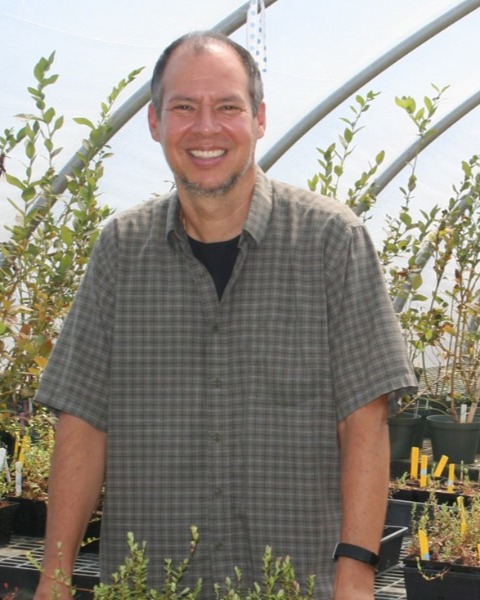Back
Plant-Insect Ecosystems
Section Symposium
Masters of Manipulation: Plant–Pathogen–Vector–Symbiont Interactions and Novel Management Techniques
Lessons learned from studies on phytoplasma-herbivore interactions in cranberries
Tuesday, November 15, 2022
1:48 PM – 2:03 PM PT
Location: Vancouver Convention Centre, Meeting Room 202

Cesar R. Rodriguez-Saona
Extension Specialist in Entomology
Rutgers, The State University of New Jersey
Chatsworth, New Jersey
Presenting Author(s)
Phytoplasma infection causes false blossom disease in cranberries, which is vectored by the blunt-nosed leafhopper. We explored how phytoplasma infection of cranberries affects the plant’s interactions with the vector and aboveground and belowground non-vector herbivores. We also compared molecular and chemical changes between infected and uninfected plants. Results showed a preference of the vector for uninfected plants but no difference in preference between infected and uninfected plants. While slower development of the vector on phytoplasma-infected cranberry plants led to larger adult size, there was no evidence for any beneficial effects of infection on other performance parameters. Larvae of all non-vector herbivore species grew bigger and consumed more plant tissue of phytoplasma-infected compared to uninfected plants. Nitrogen concentrations were higher, while levels of defensive proanthocyanidins were reduced, in infected plants compared to uninfected plants. At the molecular level, phytoplasma infection increased the expression of genes associated with nutrient metabolism, while suppressing genes associated with defensive pathways. In conclusion, phytoplasma infection through changes in phytochemistry and gene expression enhanced host-quality of cranberries to non-vector herbivores, although the benefits on its vector are less clear.

